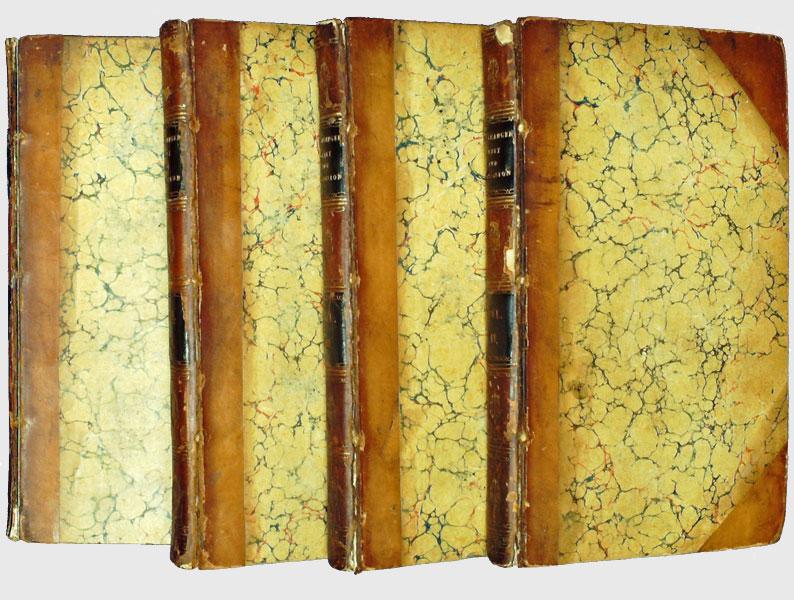1. This book is uproariously funny! Full on belly laughs in every chapter all the way through. I seem to be having trouble getting people to believe me on this, especially those who have a rigid conception of Austen but have not read this book. Let me put it to you this way: Austen makes a penis joke in the third line of the novel. Here are the first three lines:
No one who had ever seen Catherine Morland in her infancy would have supposed her born to be an heroine. Her situation in life, the character of her father and mother, her own person and disposition, were all equally against her. Her father was a clergyman, without being neglected, or poor, and a very respectable man, though his name was Richard—and he had never been handsome.See! Dick joke! And from there things just get more funny and more anti-sentimentalism and more antagonistic to Gothic novels. The whole thing is a hilarious satire of sentimentalism and Gothic novels. Catherine imagines many dark doings around her. Austen delights in saying that Catherine should arrive home in a train of unimaginable wealth and glory, per the Gothic sensibility, but she doesn’t. Every Gothic-esque situation she gets into turns to her shame and embarrassment because she lets her imagination run wild. Austen continually breaks the fourth wall to point out what other novels show she should be writing, illuminating the tropes of Gothic tropes, then subverts them clearly in order to show her disgust at those tactics. And this of course brings the theme of life not being a novel to the fore. It’s almost bitter, but continually hilarious throughout. The most notable part is the whole second half of chapter five, where she breaks the fourth wall to take novel writers and critics to task for decrying novels in their own works. Here is a small portion of that truly funny portion:
Alas! If the heroine of one novel be not patronized by the heroine of another, from whom can she expect protection and regard? I cannot approve of it. Let us leave it to the reviewers to abuse such effusions of fancy at their leisure, and over every new novel to talk in threadbare strains of the trash with which the press now groans. Let us not desert one another; we are an injured body.
2. The structure of the novel is a straight narrative in that the novel progresses linearly from start to finish, with only these funny asides to break the flow. This structure works for her story because it allows these asides to stick out like sore thumbs and ensure the reader that she’s satirizing the whole way through.
3. The writing is good: she has a wonderful way of writing the narrative, and her fourth-wall-breaking parts are uproariously funny and well paced. Austen does this thing where she often summarizes dialogue, and it works well:
She was looked at, however, and with some admiration; for, in her own hearing, two gentlemen pronounced her to be a pretty girl. Such words had their due effect; she immediately thought the evening pleasanter than she had found it before—her humble vanity was contented—she felt more obliged to the two young men for this simple praise than a true-quality heroine would have been for fifteen sonnets in celebration of her charms, and went to her chair in good humour with everybody, and perfectly satisfied with her share of public attention.This tactic works by telling the reader exactly what’s important, instead of showing them the effect the dialogue had on Catherine. Austen tells very well.
4. Austen’s character creation is strong. Mr. Thorpe, Isabella, Henry, the General, and Catherine are all distinct characters who are different people. Austen does this through describing them immediately, but not with the usual blazon. Rather, she describes their character, what makes them tick. With Isabella, her tactic is a little different in that Austen shows her character very effectively through her actions and reactions. Like any Austen book that I’ve read, her characters all make sense and seem realistic for the situations and time period that they exist in.
5. In all, this is a good book. It’s hilarious and well written, structured simply but effectively, and contains good characters. But I fear it’s too referential to be a great book: if you aren’t familiar with Gothic novels and Rousseauian sensibilities, the jokes will fall flat and this will seem like a poor Austen novel. However, for somebody who has read some of those, or is at least familiar with them, this novel is a real treat: a wry, satirical look at the Gothic sensibilities with just a hint of bitterness.





No comments:
Post a Comment